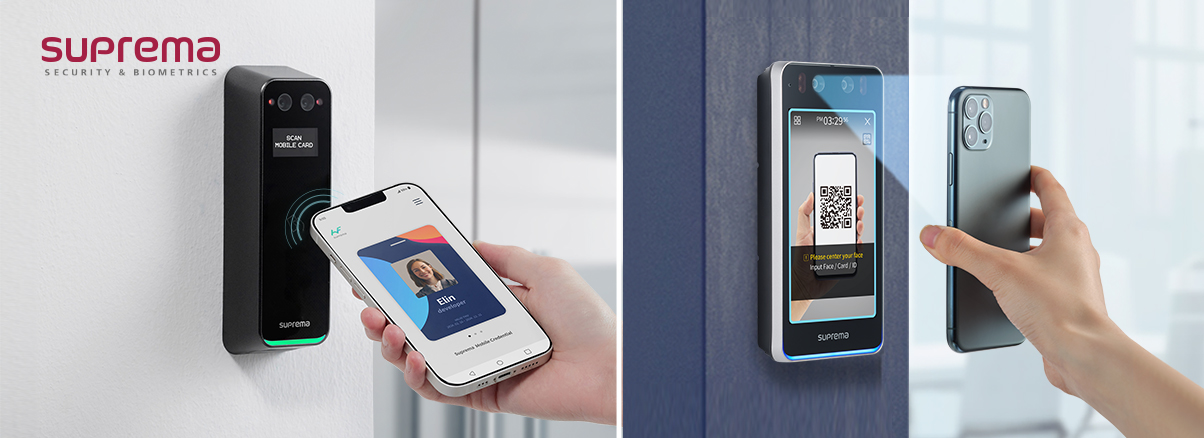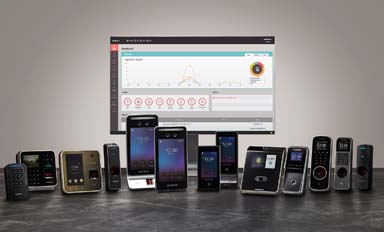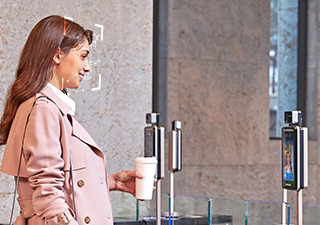SUPREMA
- ニュース
- Suprema の最新プレスリリース

The South Korean security market is quite booming. This is driven by increased government spending, private sector demand and compliance requirements. This article takes a closer look, based on interviews with major Korean security companies.
Gov’t spending increases
A major growth driver for the Korean security market has been increased spending by the government.
“According to internal data from the Public Procurement Service, the total transaction performance of the National Electronic Procurement System in 2023 is approximately U$106 billion, up more than approximately $7.4 billion from the previous year, showing a continuous upward trend,” said Su-Bin Yeon, Assistant Manager at IDIS. “Government-led projects are increasing. For example, Seoul City is in the process of converting CCTVs installed throughout Seoul, including parks and hiking trails, to artificial intelligence-based intelligent CCTVs by 2026 in order to prioritize citizen safety.”
“The public sector is experiencing a surge in demand for security solutions, particularly in the realm of mobile access. By December, the Korean government will allow citizens aged 17 and older to obtain mobile versions of their national ID cards, driving the adoption of mobile access systems in government institutions. Suprema supports mobile authentication across all its access control solutions,” said Hanchul Kim, CEO of Suprema.
Meanwhile, several high-profile, recent security-related incidents in Korea have led government agencies and offices to invest in security and safety solutions to protect lives.
“Several fire incidents, including one in an underground parking lot that caused property damage exceeding 10 billion KRW, have led to a surge in demand for installing fire detection cameras at electric vehicle charging stations operated by public institutions. As a result, the demand for the integrated flame detection camera developed by our company is also rising,” said Sungin Kim, Marketing Team Leader at Webgate.
Private sector investment
Korea’s security market boom is also fueled by private sector investment.
“Within the private sector, the demand for security solutions continues to grow, despite the economic downturn has led to delays or cancellations of new projects. There is a marked increase in the need for AI-powered solutions to mitigate false alarms in existing facilities that require system replacements,” said Chuck Jeon, VP and Head of the APAC Sales Department of Hanwha Vision. “For ongoing new projects, there is a strong preference for end-to-end solutions that prioritize user convenience. These integrated solutions often encompass a range of systems, including CCTV, parking management, parking guidance, access control, fire monitoring, and audio alarms, to create a seamless and interconnected security infrastructure.”
“Large enterprises are increasingly adopting mobile access solutions, seeking to upload employee ID cards to their smartphones. Suprema’s mobile credentials, such as mobile access cards, QR codes, and barcodes, allow users to access doors via their smartphones, either alone or combined with additional authentication methods. Suprema's in-app SDK also enables mobile access cards to integrate seamlessly into company apps,” Kim of Suprema said.
It should also be noted that the concept of “social safety” is also being highlighted in the private sector.
“In residential facilities, the demand for high-specification products is gradually increasing, including the increased use of high-resolution AI cameras. As the number of unmanned facilities increases, the importance of security is emerging in commercial facilities, and video security solutions linked to IoT are attracting attention, Yeon said. “As 'social safety' has emerged as a big issue, domestic security companies, including IDIS, are focusing their capabilities on improving social safety and security beyond the role of existing video security companies. We are strengthening technologies necessary for society as a whole, including AI, IoT, access control, and parking solutions.”
Compliance-driven
It’s also important to note that compliance has played a key role in Korea’s security market growth.
“The video security market in Korea has strengthened its security standards starting in 2023 by making TTA certification mandatory for products supplied to public institutions. Furthermore, starting in 2025, the ‘National Security Function Verification’ system will be introduced, requiring a more stringent security certification than the current TTA security requirements. As a result, demand for replacing existing video security products is expected to increase, and with the activation of new markets, growth of at least 20 percent, is anticipated,” Kim of Webgate said.
Source: asmag.com













